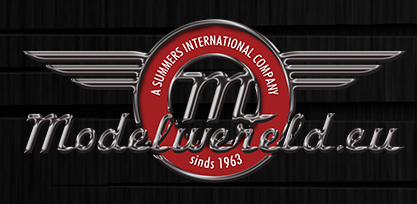The Panzerkampfwagen IV (Pz.Kpfw. IV), commonly known as the Panzer IV, was a German medium tank developed in the late 1930s and used extensively during the Second World War. Its ordnance inventory designation was Sd.Kfz. 161.
Designed as an infantry-support tank, the Panzer IV was not originally intended to engage enemy armor—that function was performed by the lighter Panzer III. However, with the flaws of pre-war doctrine becoming apparent and in the face of Soviet T-34 tanks, the Panzer IV soon assumed the tank-fighting role of its increasingly obsolete cousin. The most widely manufactured and deployed German tank of the Second World War, the Panzer IV was used as the base for many other fighting vehicles, including the Sturmgeschütz IV assault gun, Jagdpanzer IV tank destroyer, the Wirbelwind self-propelled anti-aircraft weapon, and the Brummbär self-propelled gun.
Robust and reliable, it saw service in all combat theaters involving Germany and has the distinction of being the only German tank to remain in continuous production throughout the war, with over 8800 produced between 1936 and 1945. Upgrades and design modifications, often made in response to the appearance of new Allied tanks, extended its service life. Generally, these involved increasing the Panzer IV's armor protection or upgrading its weapons, although during the last months of the war with Germany's pressing need for rapid replacement of losses, design changes also included retrograde measures to simplify and speed manufacture.
The next version, the Ausf. H, began production in June 1943[2] and received the designation Sd. Kfz. 161/2. This variant saw the integrity of the glacis armor improved by manufacturing it as a single 80-millimetre (3.15 in) plate. To prevent adhesion of magnetic anti-tank mines, which the Germans feared would be used in large numbers by the Allies, Zimmerit paste was added to all the vertical surfaces of the tank's armor. The vehicle's side and turret were further protected by the addition of 5-millimetre (0.20 in) side-skirts and 8-millimetre (0.31 in) turret skirts.[34] During the Ausf. H's production run, its rubber-tired return rollers were replaced with cast steel; the hull was fitted with triangular supports for the easily-damaged side-skirts. A hole in the roof, designed for the Nahverteidigungswaffe, was plugged by a circular armored plate due to shortages of this weapon. These modifications meant that the tank's weight jumped to 25 tonnes (27.56 short tons), reducing its speed, a situation not improved by the decision to adopt the Panzer III's six-speed SSG 77 transmission, which was inferior to that of earlier-model Panzer IVs
Despite addressing the mobility problems introduced by the previous model, the final production version of the Panzer IV—the Ausf. J—was considered a retrograde from the Ausf. H. Born of German necessity to replace heavy losses, it was greatly simplified to speed production. The electric generator that powered the tank's turret traverse was removed, so the turret had to be rotated manually. The space was later used for the installation of an auxiliary 200-litre (44 imp gal) fuel tank; road range was thereby increased to 320 km (200 mi), The pistol and vision ports in the turret were removed, and the engine's radiator housing was simplified by changing the slanted sides to straight sides. In addition, the cylindrical muffler was replaced by two flame-suppressing mufflers. By late 1944, Zimmerit was no longer being applied to German armored vehicles, and the Panzer IV's side-skirts had been replaced by wire mesh, while to further speed production the number of return rollers was reduced from four to three.
Vier uitvoeringen mogelijk;
- Panz.Lehr Div.Normandië 1944.
- Oost-front, onbekende eenheid 1943.
- 2de Panz.Div.Normandië 1944.
- 16de panz.Div.Stalingrad 1942-43.


